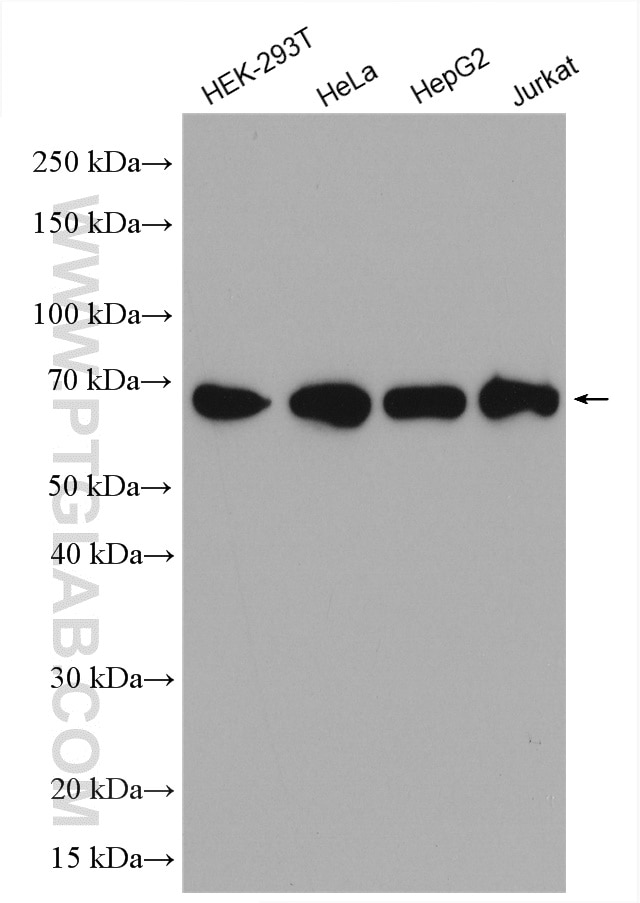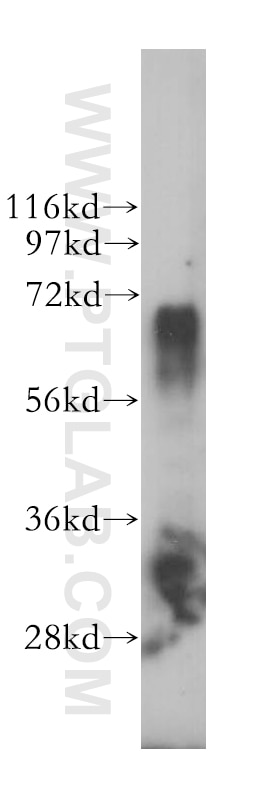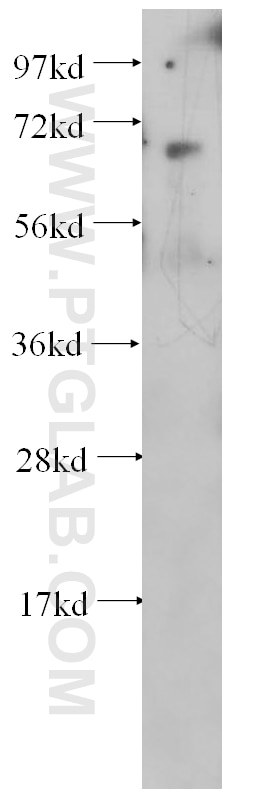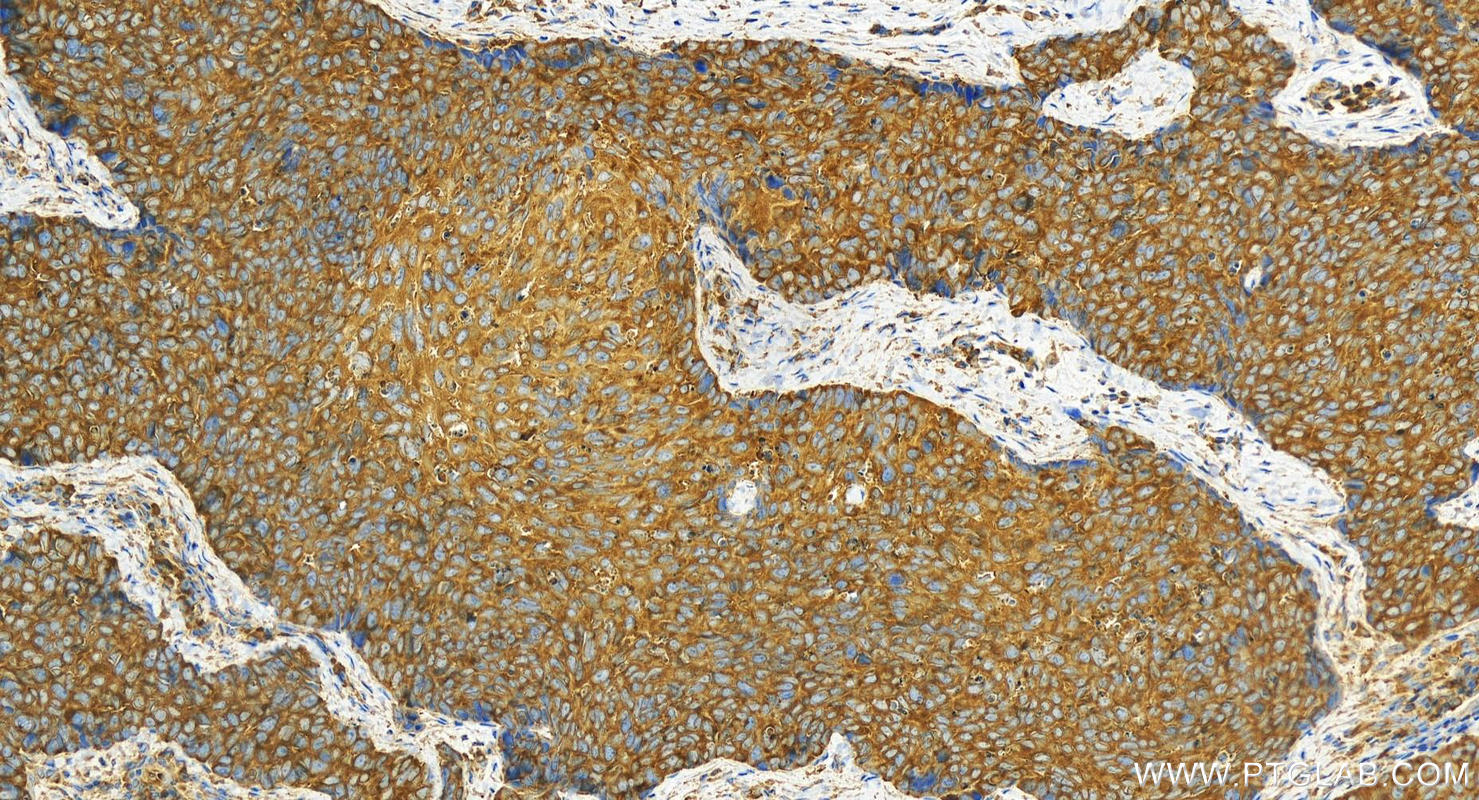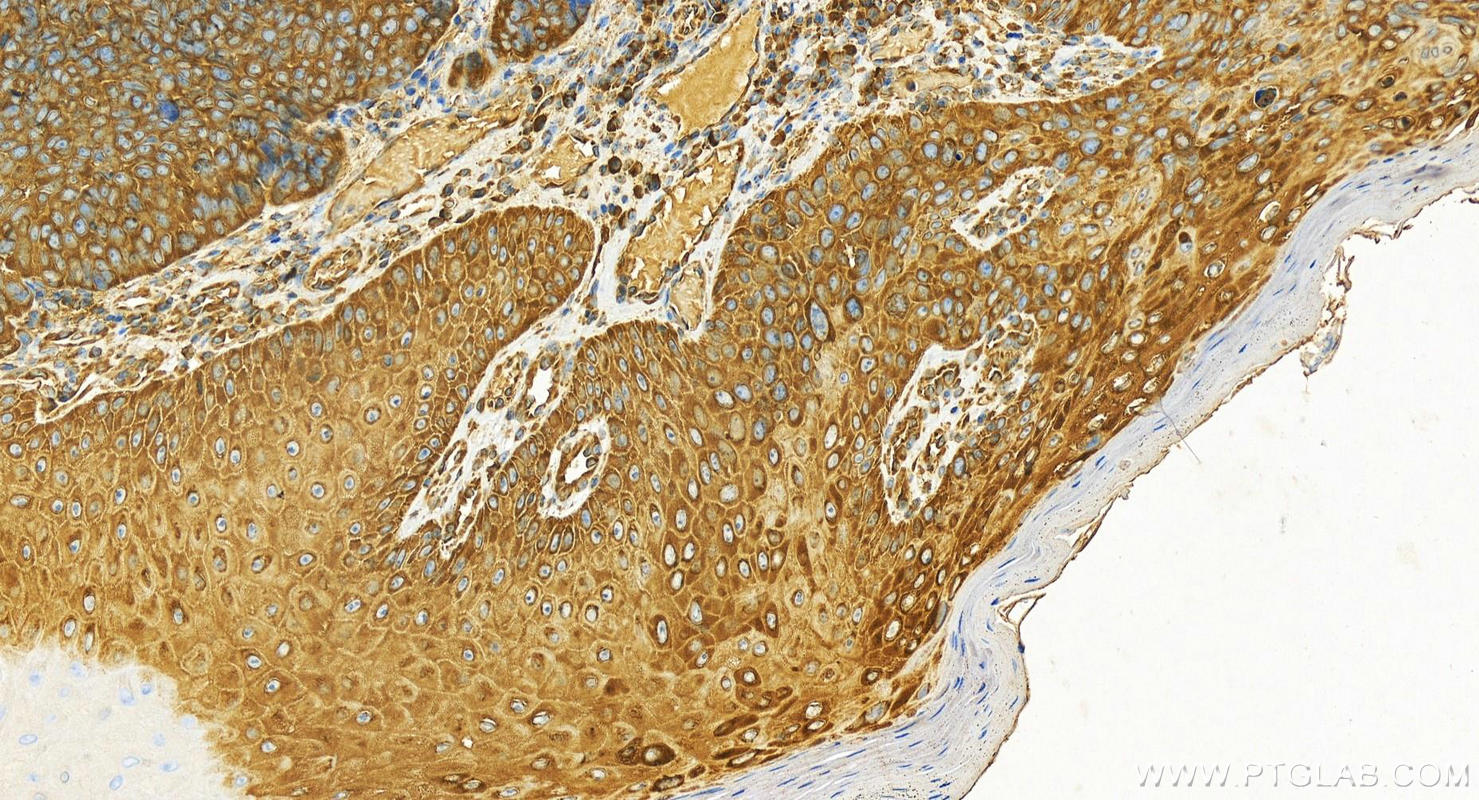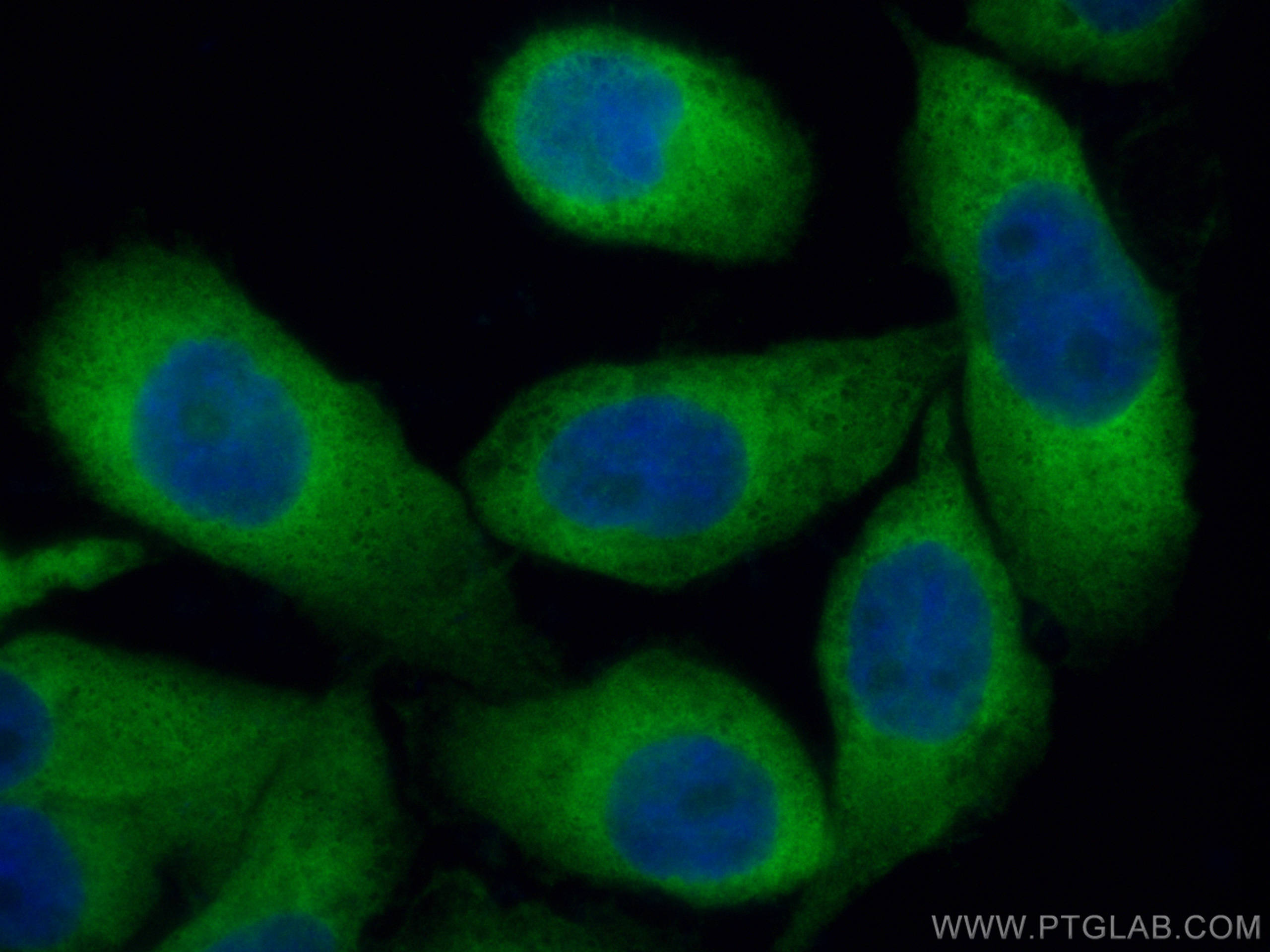- Phare
- Validé par KD/KO
Anticorps Polyclonal de lapin anti-KARS
KARS Polyclonal Antibody for WB, IHC, IF/ICC, ELISA
Hôte / Isotype
Lapin / IgG
Réactivité testée
Humain et plus (2)
Applications
WB, IHC, IF/ICC, ELISA
Conjugaison
Non conjugué
N° de cat : 14951-1-AP
Synonymes
Galerie de données de validation
Applications testées
| Résultats positifs en WB | cellules HEK-293T, cellules HeLa, cellules HepG2, cellules Jurkat, tissu de côlon humain |
| Résultats positifs en IHC | human brown disease, il est suggéré de démasquer l'antigène avec un tampon de TE buffer pH 9.0; (*) À défaut, 'le démasquage de l'antigène peut être 'effectué avec un tampon citrate pH 6,0. |
| Résultats positifs en IF/ICC | cellules A431, |
Dilution recommandée
| Application | Dilution |
|---|---|
| Western Blot (WB) | WB : 1:1000-1:4000 |
| Immunohistochimie (IHC) | IHC : 1:200-1:800 |
| Immunofluorescence (IF)/ICC | IF/ICC : 1:50-1:500 |
| It is recommended that this reagent should be titrated in each testing system to obtain optimal results. | |
| Sample-dependent, check data in validation data gallery | |
Applications publiées
| KD/KO | See 1 publications below |
| WB | See 10 publications below |
| IF | See 3 publications below |
Informations sur le produit
14951-1-AP cible KARS dans les applications de WB, IHC, IF/ICC, ELISA et montre une réactivité avec des échantillons Humain
| Réactivité | Humain |
| Réactivité citée | Humain, poisson-zèbre, souris |
| Hôte / Isotype | Lapin / IgG |
| Clonalité | Polyclonal |
| Type | Anticorps |
| Immunogène | KARS Protéine recombinante Ag6778 |
| Nom complet | lysyl-tRNA synthetase |
| Masse moléculaire calculée | 68 kDa |
| Poids moléculaire observé | 68 kDa |
| Numéro d’acquisition GenBank | BC004132 |
| Symbole du gène | KARS |
| Identification du gène (NCBI) | 3735 |
| Conjugaison | Non conjugué |
| Forme | Liquide |
| Méthode de purification | Purification par affinité contre l'antigène |
| Tampon de stockage | PBS with 0.02% sodium azide and 50% glycerol |
| Conditions de stockage | Stocker à -20°C. Stable pendant un an après l'expédition. L'aliquotage n'est pas nécessaire pour le stockage à -20oC Les 20ul contiennent 0,1% de BSA. |
Informations générales
KARS (lysyl-tRNA synthetase) is a gene that encodes an enzyme critical for protein synthesis, specifically responsible for attaching the amino acid lysine to its corresponding transfer RNA (tRNA) in both the cytoplasm and mitochondria. This enzyme plays a crucial role in the process of aminoacylation, which is essential for accurate protein translation from mRNA sequences. Mutations in the KARS gene have been associated with a variety of neurological and systemic disorders, reflecting the enzyme's importance in cellular function.
Protocole
| Product Specific Protocols | |
|---|---|
| WB protocol for KARS antibody 14951-1-AP | Download protocol |
| IHC protocol for KARS antibody 14951-1-AP | Download protocol |
| IF protocol for KARS antibody 14951-1-AP | Download protocol |
| Standard Protocols | |
|---|---|
| Click here to view our Standard Protocols |
Publications
| Species | Application | Title |
|---|---|---|
Mol Cell A methyltransferase-independent role for METTL1 in tRNA aminoacylation and oncogenic transformation | ||
Sci Adv Lysyl-tRNA synthetase produces diadenosine tetraphosphate to curb STING-dependent inflammation. | ||
Nucleic Acids Res Deletion of Mtu1 (Trmu) in zebrafish revealed the essential role of tRNA modification in mitochondrial biogenesis and hearing function. | ||
Nucleic Acids Res Regulation of ex-translational activities is the primary function of the multi-tRNA synthetase complex. | ||
Cell Chem Biol Novel RNA-Affinity Proteogenomics Dissects Tumor Heterogeneity for Revealing Personalized Markers in Precision Prognosis of Cancer. | ||
Hum Mutat Inhibition of mitochondrial translation in fibroblasts from a patient expressing the KARS p.(Pro228Leu) variant and presenting with sensorineural deafness, developmental delay, and lactic acidosis. |
Avis
The reviews below have been submitted by verified Proteintech customers who received an incentive for providing their feedback.
FH Kishor (Verified Customer) (01-30-2019) | This antibody working well against rat liver tissue and human cancer cells
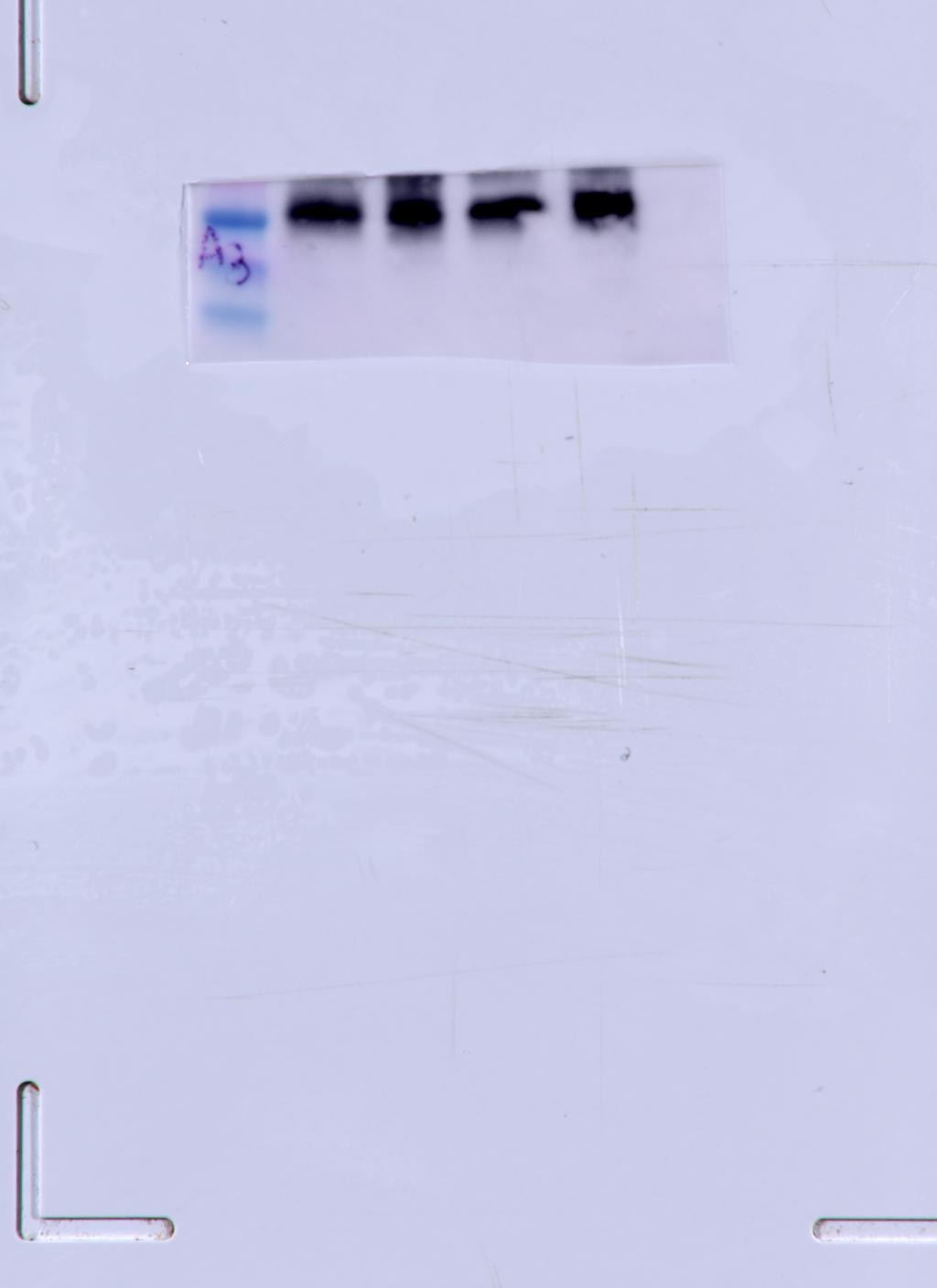 |
